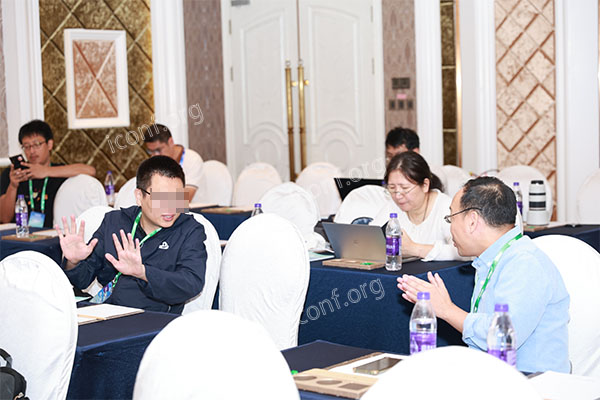Attending academic conferences can be a transformative experience, offering opportunities to learn, network, and share research. However, making the most of these events requires effective planning, starting with a detailed understanding of the conference schedule. In this guide, we’ll explore how to navigate conference schedules and maximize your participation.

1. Understanding Conference Schedules
Conference schedules are structured to offer diverse sessions and activities tailored to attendees' interests. Key components often include:
- Opening Ceremony: Highlights the conference’s theme and sets the tone for the event.
- Keynote Sessions: Presentations by renowned experts offering insights into the latest trends and challenges.
- Discussion Panels: Interactive sessions with multiple speakers addressing specific topics.
- Paper Presentations: Researchers share their findings, often in parallel sessions organized by themes.
- Workshops: Hands-on sessions focused on practical skills or emerging tools.
- Networking Events: Opportunities to connect with peers, mentors, and collaborators.
2. Why Planning Your Conference Schedule Matters
Careful planning ensures you gain the most value from attending an academic conference. Benefits include:
- Maximizing Learning Opportunities: Attend sessions that align with your interests and career goals.
- Efficient Time Management: Avoid conflicts between overlapping sessions.
- Strategic Networking: Identify opportunities to meet key speakers or collaborators.
3. Tips for Navigating Conference Schedules
To make your conference experience seamless and rewarding:
-
Review the Agenda in Advance
Most conferences publish detailed schedules weeks before the event. Use these to identify sessions, speakers, and activities of interest.
-
Set Priorities
Determine your must-attend sessions, such as keynote addresses, workshops, or specific paper presentations.
-
Stay Flexible
Be open to exploring unexpected opportunities, such as impromptu networking or intriguing sessions outside your field.
-
Use Conference Apps
Many conferences offer mobile apps with real-time updates on schedules, venue maps, and speaker information.
4. What to Look for in a Conference Schedule
When reviewing a conference schedule, pay attention to:
- Session Titles and Abstracts: Ensure they align with your research or professional interests.
- Speaker Profiles: Look for opportunities to learn from or connect with leading experts.
- Break Times: Use these to recharge or network with other attendees.
- Special Events: Watch for unique activities like award ceremonies, poster sessions, or sponsor exhibits.
5. How to Access Conference Schedules
Getting access to detailed schedules is easier than ever:
- Conference Websites: Check the event’s official site for downloadable agendas.
- Event Platforms: Use resources like iconf.org to explore conference listings and schedules.
- Email Updates: Subscribe to conference mailing lists for notifications about changes or additions to the program.
6. Making the Most of Your Conference Participation
Once you’ve planned your schedule, ensure a productive experience by:
- Engaging Actively: Take notes during sessions and participate in discussions.
- Following Up: Connect with speakers and attendees on LinkedIn or via email.
- Sharing Knowledge: Reflect on key takeaways and share them with your peers or institution.
Conclusion
Conference schedules are the backbone of an effective academic experience. By understanding the structure, planning your participation, and staying informed, you can make the most of every opportunity. Explore upcoming conference schedules, themes, and keynote speakers today with resources like iconf.org. Stay organized, engaged, and ready to advance your academic and professional journey!
